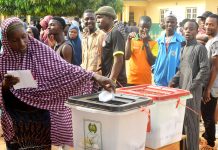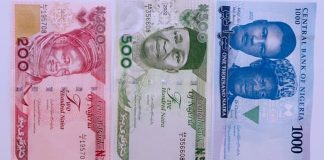International consumers owe Nigeria approximately $51.26 million for electricity supplied in 2023, according to the Federal Government’s latest industry data. This non-payment highlights significant financial gaps in the country’s power export system.
Additionally, another group of consumers, categorized as bilateral power consumers, failed to remit around ₦7.61 billion to the Nigerian power sector last year.
The Nigerian Electricity Regulatory Commission (NERC) criticized this trend as a form of payment indiscipline. The Market Operator, a division of the Transmission Company of Nigeria responsible for power exports, was urged to address this issue.
Analysis of the data revealed that international consumers did not remit $16.11 million, $11.97 million, $11.16 million, and $12.02 million in the first, second, third, and fourth quarters of 2023, respectively. Similarly, bilateral consumers defaulted on payments of ₦827 million, ₦2.03 billion, ₦2.8 billion, and ₦1.95 billion across the same periods.
Despite Nigeria’s insufficient power supply to meet domestic demand, the country exports electricity under strategic agreements with neighboring nations like Niger, Togo, and Benin. However, some of these international customers have consistently failed to make adequate payments.
Commenting on first-quarter remittances, NERC noted, “None of the international customers made any payment against the cumulative $16.11 million invoice issued in 2023/Q1: Paras-SBEE ($3.46 million), Transcorp-SBEE ($3.85 million), Mainstream-NIGELEC ($5.48 million), and Odukpani-CEET ($3.32 million).”
For bilateral consumers, NERC stated, “Out of ₦842.38 million invoiced to all eight bilateral customers in the Nigeria Electricity Supply Industry (NESI), only North South/Star Pipe remitted ₦15.38 million against its invoice of ₦24.69 million.”
In the second quarter, only Transcorp-SBEE made a partial payment of $1.43 million against a $2.13 million invoice, while other international customers did not pay the remaining $11.97 million. Bilateral customers remitted ₦816.66 million against a cumulative invoice of ₦2.845 billion.
In the third quarter, none of the international customers paid the cumulative $11.16 million invoiced, and no bilateral customers remitted against the ₦2.814 billion invoiced.
In the fourth quarter, international customers failed to remit $12.02 million, and bilateral customers did not pay the ₦1.952 billion invoiced.
National Secretary of the Nigeria Electricity Consumer Advocacy Network, Uket Obonga, expressed frustration over the situation, questioning the rationale behind exporting electricity when Nigeria struggles to supply its own citizens. He noted, “A World Bank report estimates that about 90 million Nigerians are not connected to the national electricity grid, despite the country exporting electricity to neighboring countries. This economic strategy seems flawed given the domestic scarcity.”
This ongoing issue raises concerns about the effectiveness of Nigeria’s power export agreements and the need for stricter enforcement of payment regulations.













